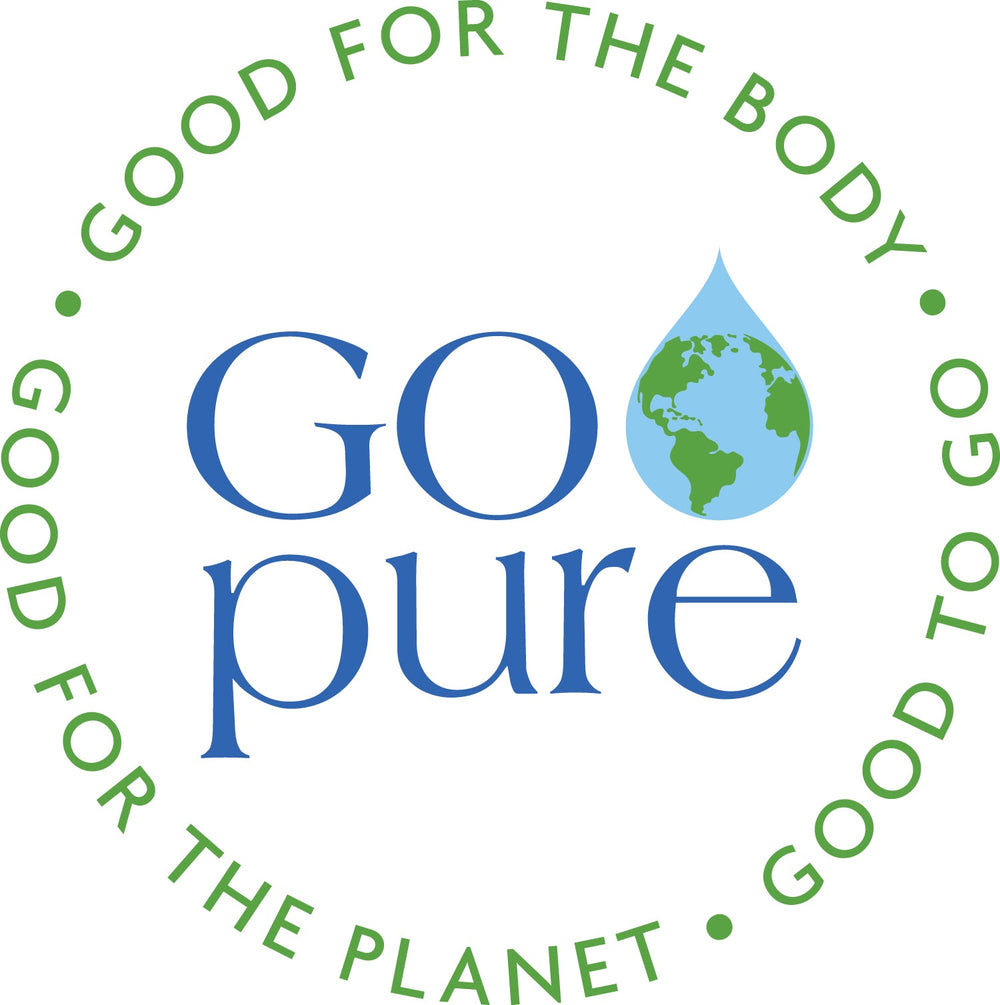Recent posts
-

-

-
 The Essential Role of Hydration in Mental ClarityApril 23, 2025
The Essential Role of Hydration in Mental ClarityApril 23, 2025

Single-Use Water Bottles vs. Reusable Water Bottles
By: GOPure
Which one is better? Disposable or Reusable Bottles
The common perception is that plastic bottles = bad and reusable bottles = Good. Right?
Disposable plastic bottles have been characterized as the toxic, ecologically damaging product, while the reusable water bottle is the cheaper, safer, and more sustainable alternative. So is that it? Is the decision between the two as clear-cut as we think?
The GOpure Pod has compiled a detailed overview of the disposable versus reusable bottle debate to assist you in determining the best option for you and your family.
What goes into manufacturing?
Disposable
Disposable water bottles are made from a plastic resin called polyethylene terephthalate (PET). It is used because of its safety, versatility, weight, transparency and the fact it can be recycled. PET plastic water bottles are fully recyclable.
They may be melted down to produce additional plastic bottles after use. However, even though they are recyclable, it is probable that they’ll be discarded than recycled.
Reusable
Reusable water bottles are made of plastic polymers, which make them lightweight and durable. Stainless steel or aluminum is used to make metal water bottles. In terms of materials, virgin aluminum is the worst culprit in terms of greenhouse gas emissions.
If a metal bottle is lined with plastic, epoxy, or resin, which is used to hide the tin-like taste, some of these materials could contain harmful chemicals.

How many times can you reuse them?
Disposable
Despite common perceptions, there is no solid scientific proof that reusing PET water bottles increases the danger of pollutants leaking into the water and making it hazardous. However, it is strongly advised that you discard any bottles that contain scratches or other symptoms of deterioration.
The FDA and other global health safety organizations have approved PET bottles for single and repeated use. But, it is crucial to remember that before refilling and reusing this container, it must be well cleaned because germs might become trapped in scratches.
Reusable
There is no hard and fast rule on how long you may keep your reusable water bottle. It all depends on what it's built of and how well you take care of it.
The main concern is rusting, which can occur if your water bottle is not constructed of premium-grade stainless steel. It is only when your bottle has broken, bent, rusted, or is otherwise seriously damaged that it is time to replace it. Which can take years if treated well.
The Impact on Convenience
Disposable Bottles
Disposable bottles are lightweight, safe, and cheap. When you're rushing out the door for work or school, single-serve bottles in plastic packaging are a simple grab-and-go alternative. It can save one time and energy in their daily routine. Without virtually any damage to the environment if it’s recycled properly.

Reusable
Whereas reusable bottles require more attention, more maintenance, and care for reuse. They need to be stored properly and managed well so that they can remain safe for constant reuse.
Summary List of the Advantages of Reusable Bottled Water
- A convenient way to store water: lightweight, great for trips
- May be better purified in the absence of a filter
- Some bottles are recyclable and reusable
- The bottled water industry provides many jobs.
Summary List of the Advantages of Reusable Bottles
- Eco-friendly: less waste, less consumption
- Greater Durability: saves on money in the long term
- Fewer health hazards
- With constantly changing colors, forms, and patterns, it provides a chance to make a fashion or lifestyle statement.

You make the final choice
You’ve seen both sides. They each have their pros and cons, so it’s up to you to make the final choice. After all, the GOpure pod purifier works with either option. Visit our website to learn more and let us know which one you’ve chosen.
Sources:
https://sciencing.com/raw-materials-plastic-bottles-5747796.html
https://sustainability.mit.edu/article/stuff-versus-stuff-which-water-bottle
Quick Links
Our Story
Terms of Service
Privacy Policy
Shipping & Returns
Wholesale
Join the Movement
Cancellation Policy
Contact Us
Sitemap
Portable Water Purifier
Water Purifier for Pets
Contact Us
GOpure Pod
Good for the Body. Good for the Planet. Good to GO!





